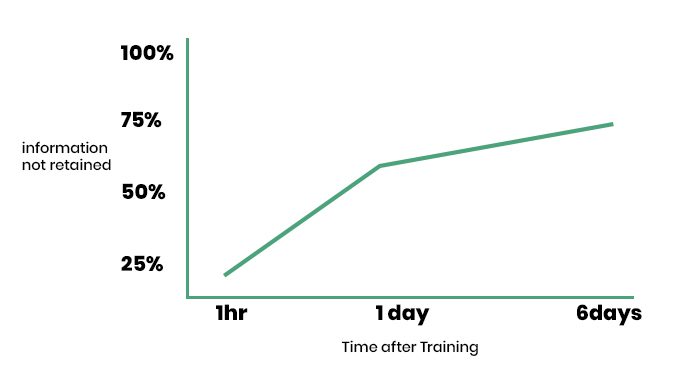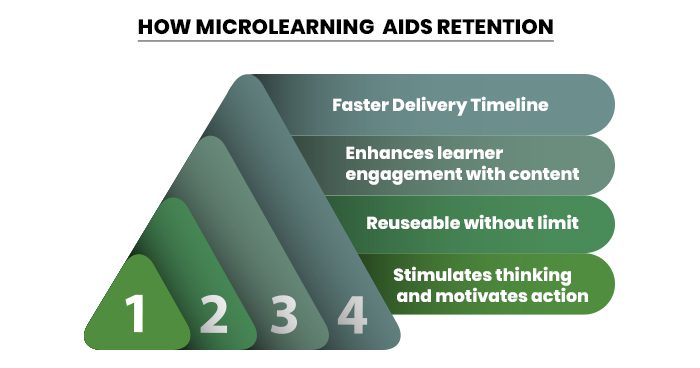Knowledge or skills acquired through study, experience, or formal training is wasted if recipients cannot retain and apply what has been learnt. Thus, knowledge retention has become critical, mainly because the knowledge gained typically gets lost over time due to the dwindling nature of the human brain’s retaining power.
FACTS ABOUT LEARNING RETENTION
According to the forgetting curve, people retain less than half of the information presented after one hour. After one day, people forget more than 70% of what was taught in training. After six days, people forget 75% of the information in their training.
An Overview of Microlearning
Microlearning deals with relatively small chunks of learning units and short-term learning activities. Although microlearning forms part of a broader curriculum or learning program, the content is a short instructional unit with a precise and clearly defined learning outcome. With microlearning, learners can achieve high knowledge retention, application of learning content and motivation to action.
Faster Delivery Timeline
With microlearning, courses can be built with dozens of small units in a short period of time. With this, organisations can respond faster to changing business goals and new training demands to upskill staff for improved productivity.
Enhances Learner Engagement with Content
Due to the bit size nature of microlearning nuggets, learners find it easier to consume the content. Imagine a learning nugget of 2 or 3mins; it engages people and helps them immediately apply the knowledge to tackle specific challenges.
Reuseable Without Limit
The microlearning design allows for the repetition of information at regular intervals, encouraging knowledge retention. This helps learners to refresh their memory about previously acquired learning content. When deployed on mobile apps, lessons are delivered at varying intervals.
Stimulates Thinking and Motivates Action
Microlearning content triggers thinking ability also referred to as Pensive Learning.
Pensive learning delivers focused learning to help participants evaluate experiences they have been through and to draw appropriate lessons. It can also be presented in a question-and-answer format that enables learners to brainstorm and troubleshoot challenges to find a solution.
Although Microlearning lessons are never a substitute for deep learning, they are effective when well-planned and concise. The goal is for each microlearning piece to have only one or two precise learning outcomes for the end-user.
“Now that we have a computer in our pockets, we’re able to have that learning anywhere.” (Karl Kapp)
At pcl., we offer and deploy rich and concise microlearning for organisations. These microlearning nuggets come in varying formats that will enable organisations to upskill their staff and prepare them for the future of work. We also offer value engineering services to enable organisations to grow their learning culture from push to pull, thereby driving adoption. To learn more about our digital learning offerings, please contact our Learning Consultants at digitallearning@phillipsconsulting.net.
Written by:

Christian Edohor
Consultant


